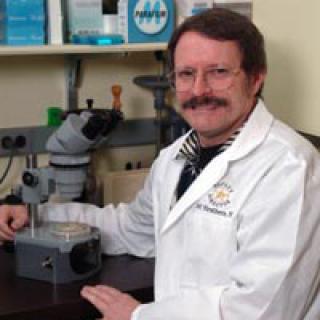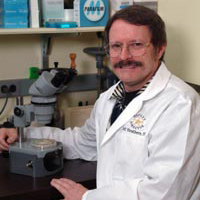
Jeffrey N. Strathern, Ph.D.
- Center for Cancer Research
- National Cancer Institute
- Building 558, Room 4
- Frederick, MD 21702-1201
- 301-846-1274
- strathej@mail.nih.gov
RESEARCH SUMMARY
Two general areas of research were pursued in our section: mechanisms of genetic recombination and the fidelity of transcription. We focused on the area of genetic recombination in general and double-strand-break repair in particular. DNA palindromes are thought to be a common mechanism of gene amplification found in tumor cells. However, palindromes are particularly difficult to investigate because they are difficult to clone and difficult to sequence. We created yeast strains that tolerate DNA palindromes and developed a system in which they can be generated and we also developed a method to determine their sequence.
Areas of Expertise
Biography

Jeffrey N. Strathern, Ph.D.
Dr. Strathern obtained his Ph.D. from the Molecular Biology Institute at the University of Oregon in 1977, then moved to Cold Spring Harbor Laboratory where he became a senior staff member with the Yeast Genetics Laboratory. In 1984, he joined the ABL-Basic Research Program at the NCI's Frederick Cancer Research Development Center (now NCI-Frederick). His research remains centered on aspects of gene regulation, transcription fidelity, and genetic recombination as revealed by studies in yeast. In 1999, Dr. Strathern joined the Division of Basic Sciences, NCI. In March 2001, the Division of Basic Sciences merged with the Division of Clinical Sciences to form the NCI Center for Cancer Research. In addition to his roles as Chief of GRCBL and Head of the Gene Regulation and Recombination Section, Dr. Strathern was a Deputy Director for the NCI-Center for Cancer Research.
Dr. Strathern retired in 2016 is now an emeritus member of the RNA Biology Laboratory.